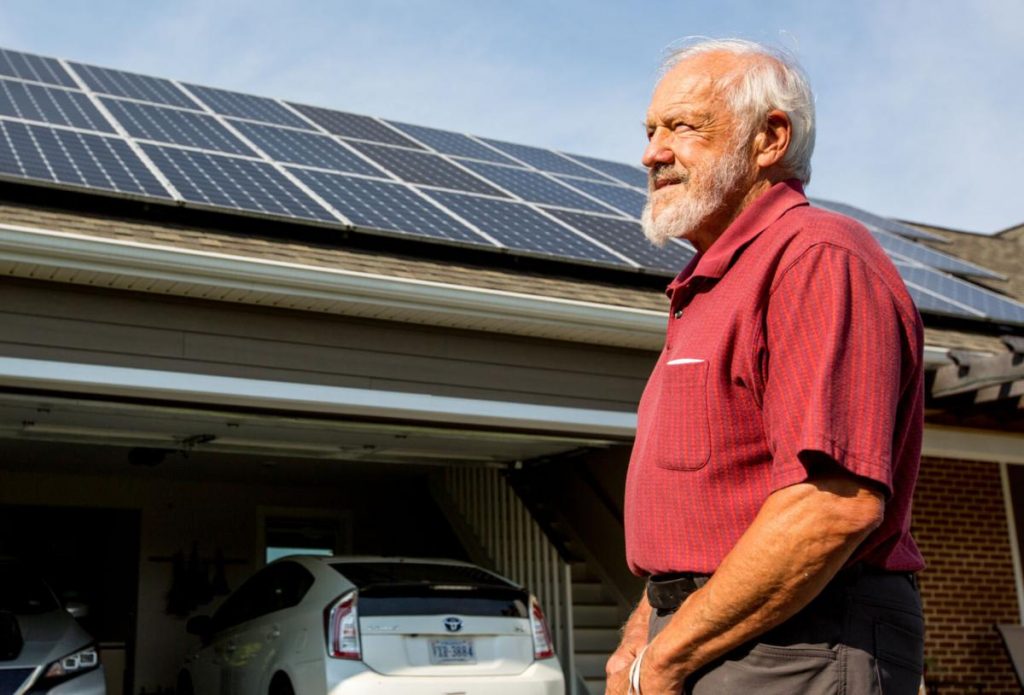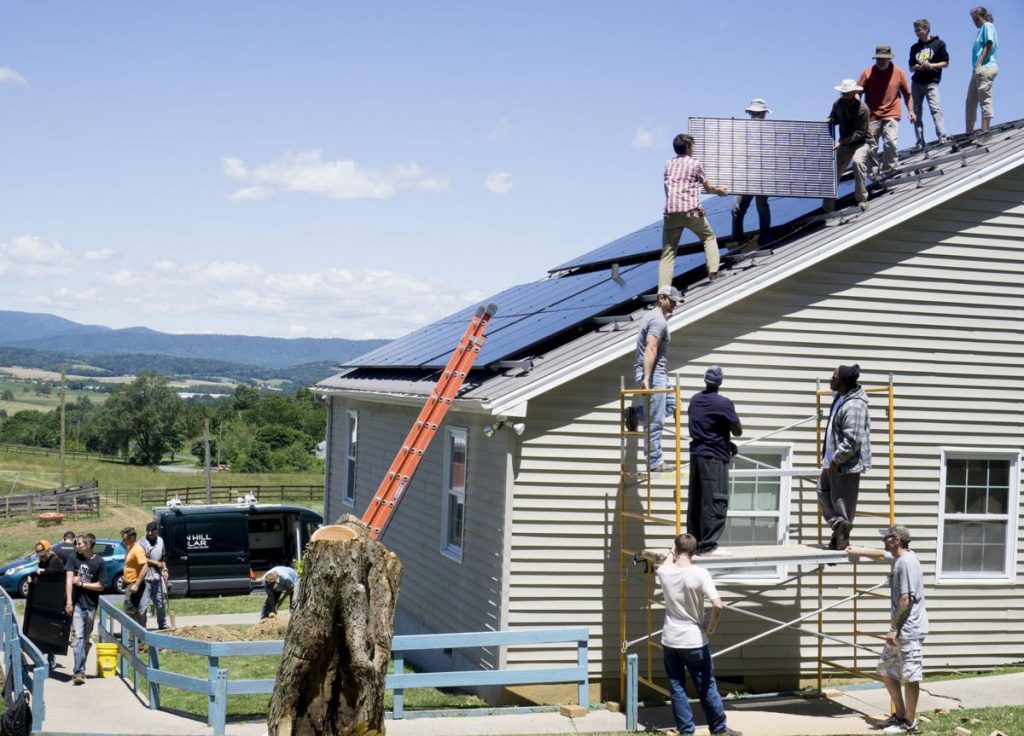Note: This article by Kathleen Shaw was published Sept. 9 in the Daily News-Record. The Voluntary Gas Tax group includes many EMU alumni and community members. We hope to provide more specific coverage about how the group has been involved in supporting projects of EMU students, including the Shell Eco-Marathon team and the Student Solar Panel Project the year prior.
Sparked by concerns over oil’s role in geopolitics in the Middle East, a small group of friends decided to self-impose a gas tax that would be directed to sustainable programs to demonstrate the ability to separate from foreign fossil fuel.
Twenty years later, Harrisonburg’s Voluntary Gas Tax group is still counting receipts and chipping in, now in arms against a new enemy: climate change.
Founding member Jeff Heie said the impetus for the group largely stemmed from the geopolitical conflicts abroad but has always and increasingly transitioned to working against and highlighting the detriment and overreliance of fossil fuels.

“What we’re really doing is working on the community level to support alternatives to fossil fuels, so most of the money we donate stays in the community, but over the years we’ve also given to national and international groups who are working towards the goal of reducing our reliance on fossil fuels,” he said.
Of the 70 email addresses listed in the group, Heie said about 30 members are regularly active. By collecting receipts and calculating flight emissions, members pledge to give back to the earth by donating to ecologically friendly and locally uplifting programs in equal measure of their detrimental gas consumption to level out the carbon foot imprint they accrue every six months.
On its website, the Voluntary Gas Tax group lists several “costs of our oil addiction,” from global warming to political intervention and even pollution-related illnesses.
Harrisonburg residents Ed Yoder and his wife, Clara, are founding members of the group who produce 90% of their electricity through solar panels and grow much of their own food. Yoder said the most difficult step in adopting more energy-efficient practices was taking the financial risk of installing solar panels, but he said the jump was worth it, and looking back was no risk at all.
“To be an authentic human being, every once in a while you have to do something that doesn’t make a lot of sense,” Yoder said of undertaking a voluntary tax. “I feel there is, in the general public, an increased concern for what we’re doing and not doing with climate change.”
Heie said the group often donates to programs in the developmental and pilot stages. For example, the Voluntary Gas Tax group donated $1,150 to the Friendly City Food Co-op in 2006, five years before it opened. Gift and Thrift set the record as largest benefactor in 2015 when the group gave the thrift store $5,000 to support its plans for solar panel roof installations.
Our Community Place is another local organization that has benefited from the Voluntary Gas Tax group’s donations. Recently, funding went to OCP’s urban gardens, Young Jupiter Market Garden, which provides food to support OCP meals programs and employment for workers who are either experiencing or at risk of homelessness.
“The Voluntary Gas Tax group shows how creative and compassionate our community can be,” Sam Nickels, executive director of OCP, said in an email. “They fund community gardens that benefit low income people, solar projects on nonprofit houses that help keep the rent low for formerly homeless persons, and other creative projects that make a real difference in our community.”
Heie said his family donates between $100 and $160 every six months, and the group raises a collective $2,000 to $3,000 each meeting, so the group has raised an estimated $80,000 since its inception in October 2000.
Gemeinschaft Home, a nonprofit that works to house and stabilize people exiting prison before reentering society, also benefited from the group years ago. The group donated over $1,000 to help Gemeinschaft Home install solar panels on its roof. Public relations coordinator Jennifer Jacovitch said the donations helped the nonprofit reduce its carbon footprint and improve the lives of locals.
“Getting financial assistance for our solar panel project from the Voluntary Gas Tax group not only has helped us to lower our reliance on nonrenewable energy sources, but also has enabled us to save money that can be redirected toward our programs and the individuals we serve in the community,” she said.
When the pandemic hit, the group had about $1,500 in the collective gas tax account, so Heie said the group decided to dedicate the funds to nonprofits to help weather the financial strain and provide stable support to neighbors in need. Community-oriented groups that benefited include Open Doors, Vine and Fig and Valley Program for Aging Services.
Stan Godshall moved to Harrisonburg from Pennsylvania three years ago and discovered the group through his son, Tim, a longtime member. In Pennsylvania, the family had solar panels but still relied on oil for heating. When it came time to move, Godshall made the full switch to be carbon neutral by installing solar panels that produce enough energy to supply their house, fuel their electric car and still produce extra that supplies Harrisonburg Electric Commission.
With little air travel and a solar-fueled car, Godshall said he does not contribute much by pledging 50 cents for every gallon purchased, but he loves the intergenerational, progressive community within the Voluntary Gas Tax group.
“It’s a group of people who are very interested in not just the environment but also helping others and justice issues through the city and places,” Godshall said. “It’s a very fun group to be around. You hear about issues we weren’t quite aware of and so it’s a pretty interesting way of trying to limit our gas emissions.”

Great work they are doing.